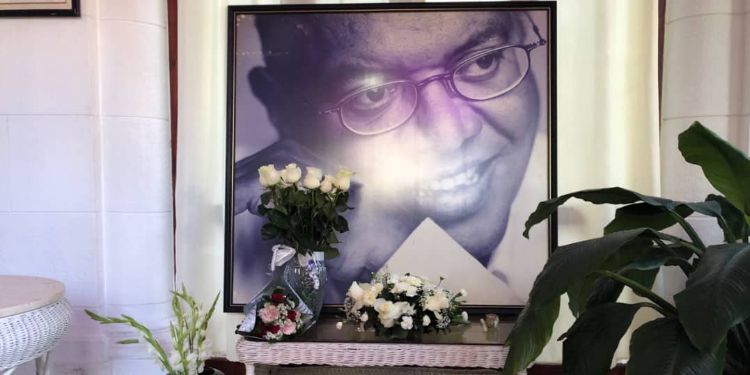Havana Cuba. — The Castro regime has always tried to appropriate the work of any renowned exiled artist or writer who dies abroad. These are, in most cases, people who were forced to flee because they dissented or opposed the government.
In a kind of artistic-literary necrophilia, many names of artists —some unknown because they are prohibited— are reincorporated into the official cultural heritage with the reissue of their works, with intellectual odes, and even with a group of pioneers paying homage to their photo. All this without even consulting his descendants.
The death of Pablo Milanés highlights the debate about who belongs to the work of the exile: to the usurping tyranny or to the nation. The discreet wake for the singer-songwriter in Havana’s Vedado does not compare to the magnificent funeral at the Casa de América in Madrid. Pablo, who preferred to live out his last months in the Spanish capital and be buried there, escaped the predatory dilettancia of Abel Prieto, Alpidio Alonso and his rowdy clique. For someone to ask if Pablo died as an exile or a simple emigrant, he unleashed the cultural pack, since, while he was dying, a foreign documentalist Castro called him a “worm”, an epithet reserved only for the most notorious opponents.
Not everyone was so lucky. Many of the intellectuals and artists who died in exile are kidnapped by the dictatorship of their intellectual memory. Jorge Manach is an example. Only many years after his death, in the 1990s, could his book be read in Cuba Marti, the Apostleconsidered the best biography of The Master, or his transcendent essays Inquiry into the choteor, and The crisis of Cuban high culture. They have even gone so far as to say that he “went to Puerto Rico by mistake, because he had no problem with the Revolution.”
The extraordinary pianist and composer Ernesto Lecuona was another victim of the kidnapping of his work. Like Mañach, he had to wait many years to be able to talk about him. There was a time when even the pianists who played his music were frowned upon and fell victim to a certain type of parameterization. When he died, his work was seized, despite the fact that he arranged that his mortal remains not return to Cuba while the Castro regime reigned.
We must not forget Gastón Baquero, exiled in Spain after the triumph of the Castro Revolution. For being homosexual and having held a position in the Batista government, the Castroites forced him into exile and condemned him to oblivion. When his death was near, the regime carried out an extensive campaign to appropriate his extensive work. In 1994 a conference was offered at the University of Havana on his poetic work. Already dead they published an anthology of his poetry.
What to say about the narrator and poet Severo Sarduy. In 1960, when he was working in Revolution Monday, he took advantage of a scholarship to go into exile in Paris. In Cuba they banned him for being homosexual and for having betrayed the Revolution. Like Gastón Baquero or the singer Celia Cruz, Severo Sarduy was never allowed to return to his homeland, but after his death he was included in anthologies and his novel was published in Cuba. Where are the singers from.
From the memory of Orlando Jiménez Leal, director of important documentaries and films, such as P.M, The supermarket Y Improper conductThey have not yet been appropriated. His work is as great as the silence that covers it. his documentary P.M, in 1961, provoked the wrath of the unnameable, who responded by warning the intellectuals with the phrase, “within the revolution everything, outside the revolution nothing.” Another documentary of yours Improper conductwhich denounced the persecution against homosexuals, led to the making of the film Strawberry and Chocolate.
Orlando Jiménez is excluded from EcuRed, the collaborative encyclopedia of the Castro regime. However, in order to misappropriate his work, the government can change from palo to rumba and, when the time comes, choose Jiménez Leal to receive the title of Youth Teacher, by the Hermanos Saiz Association (AHS), or that his controversial documentaries, critical of tyranny, are presented at the Faculty of Audiovisual Media (FAMCA).
Receive information from CubaNet on your cell phone through WhatsApp. Send us a message with the word “CUBA” on the phone +525545038831, You can also subscribe to our electronic newsletter by giving click here.






